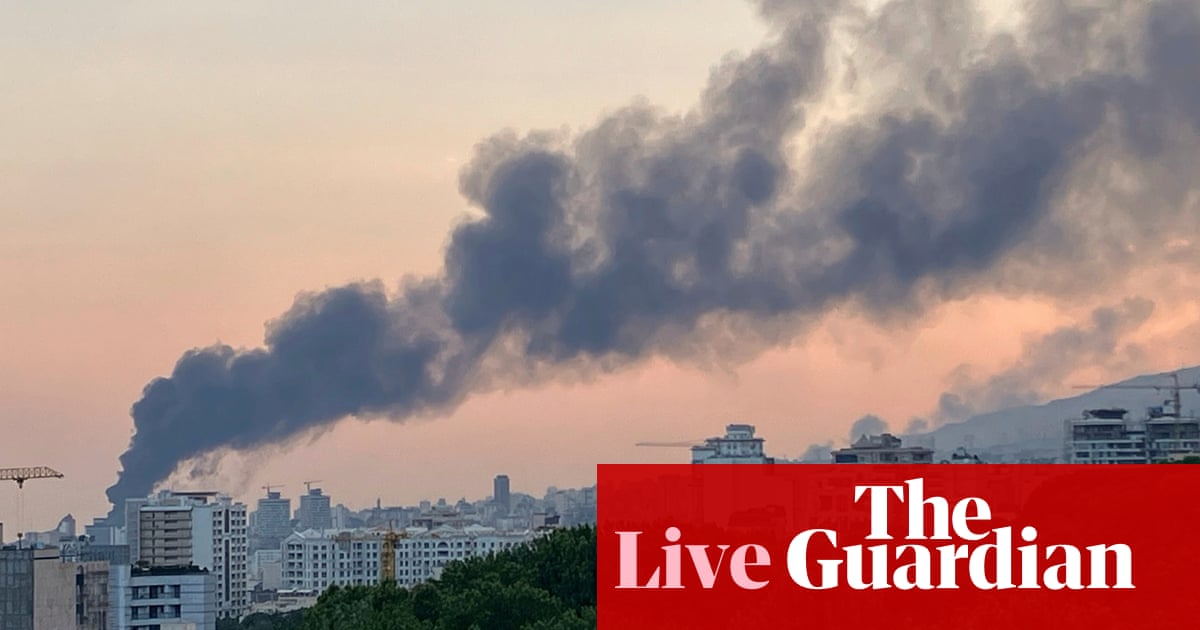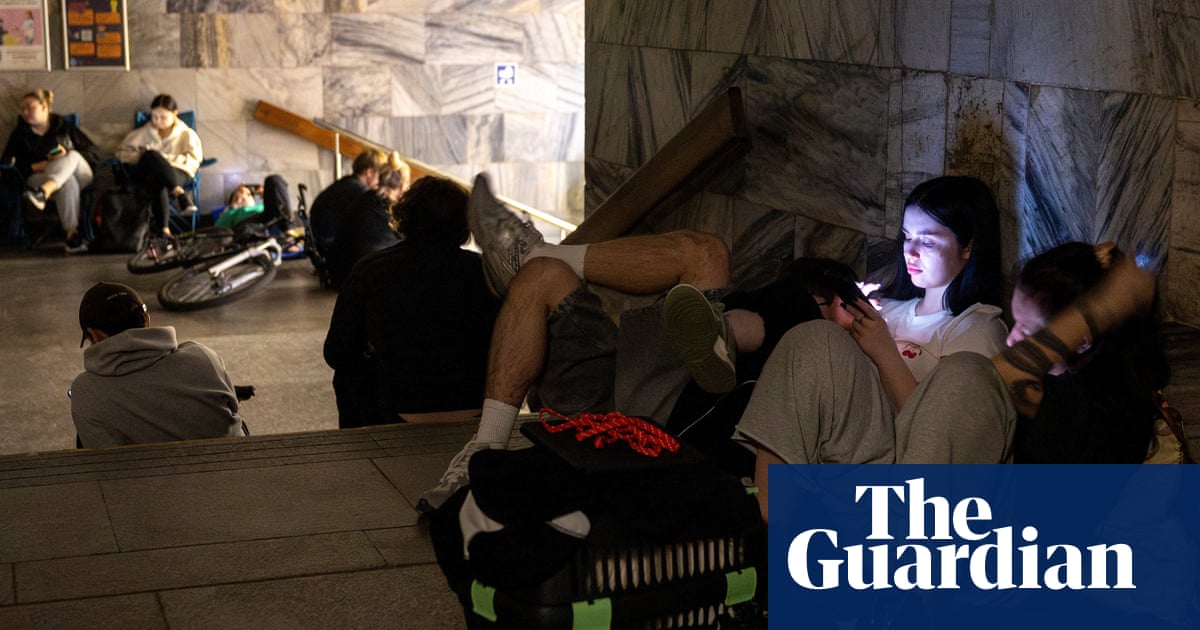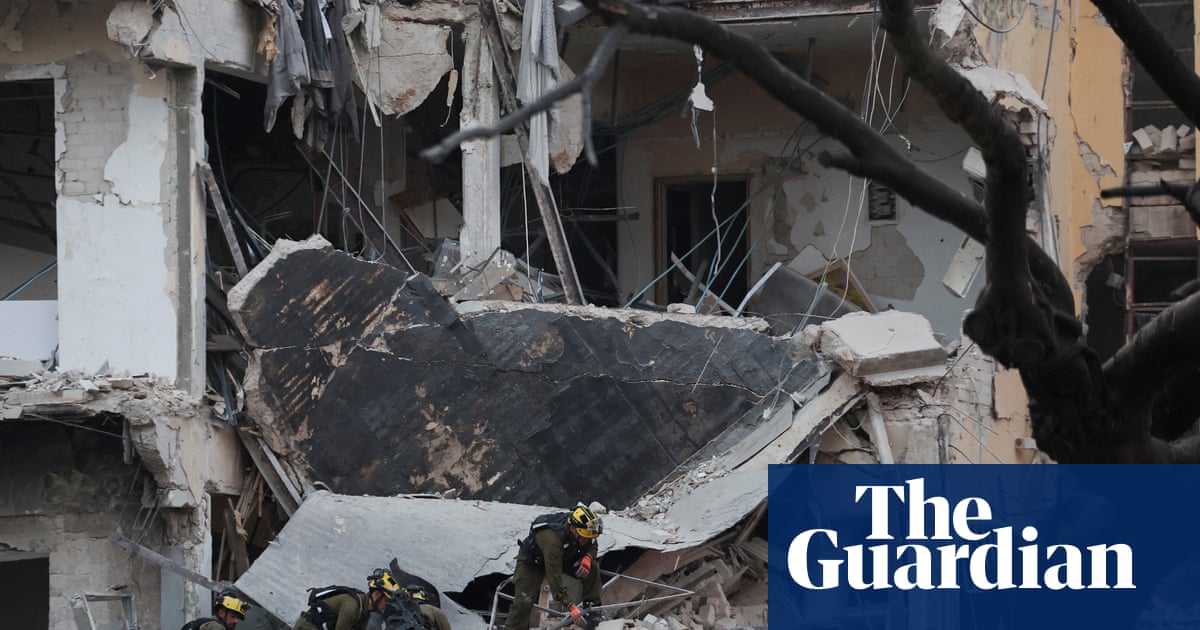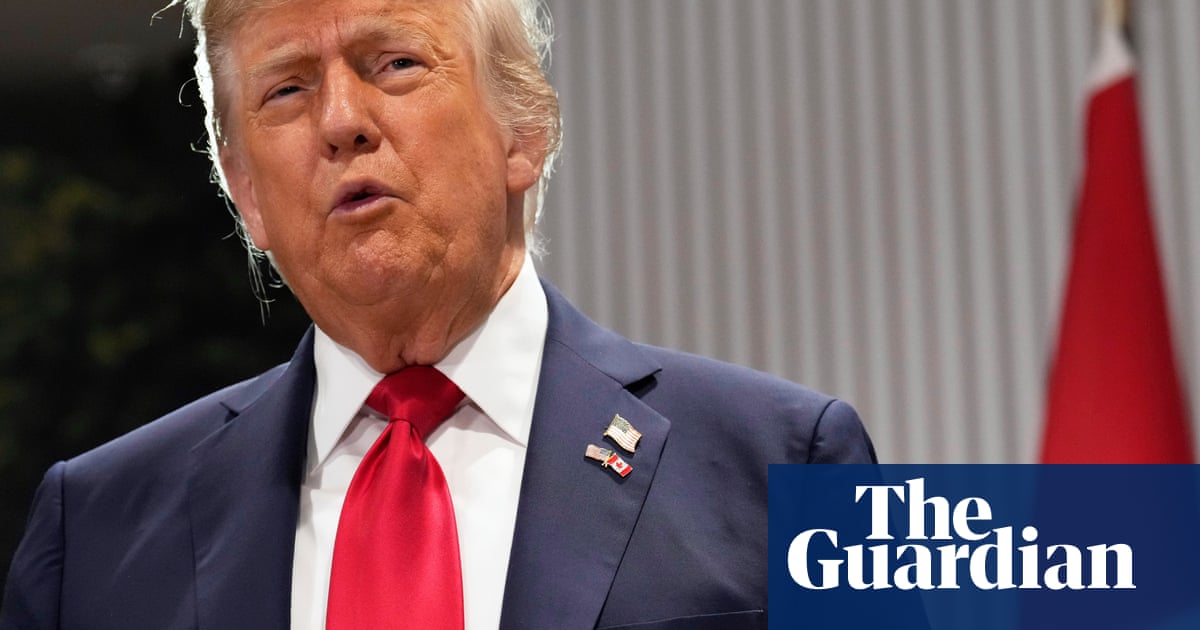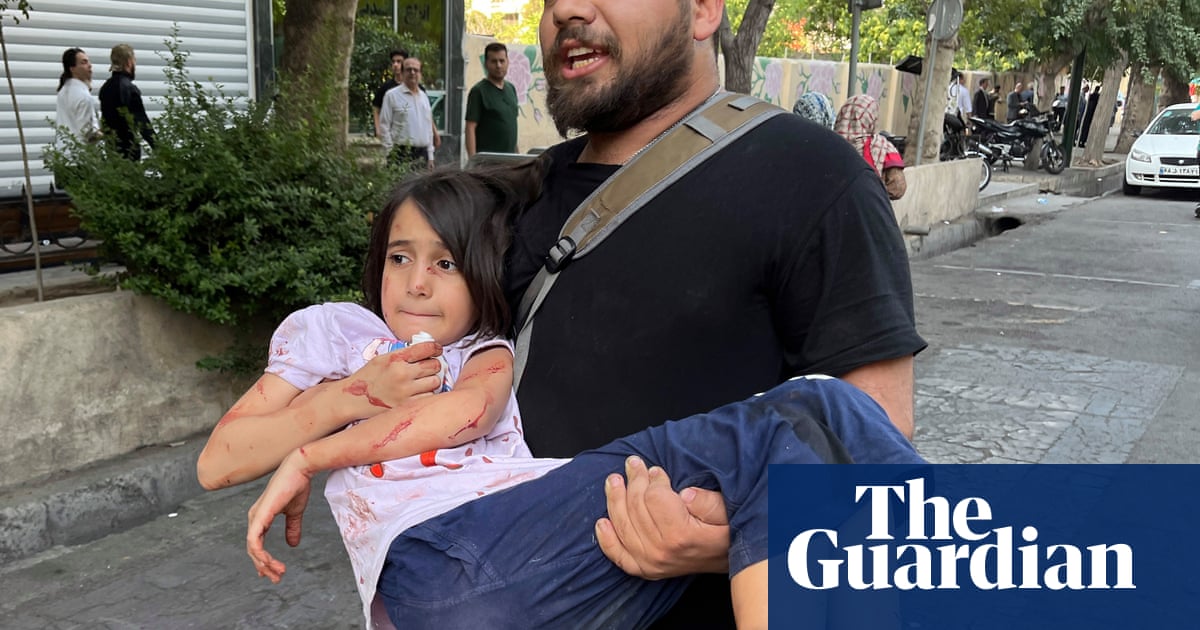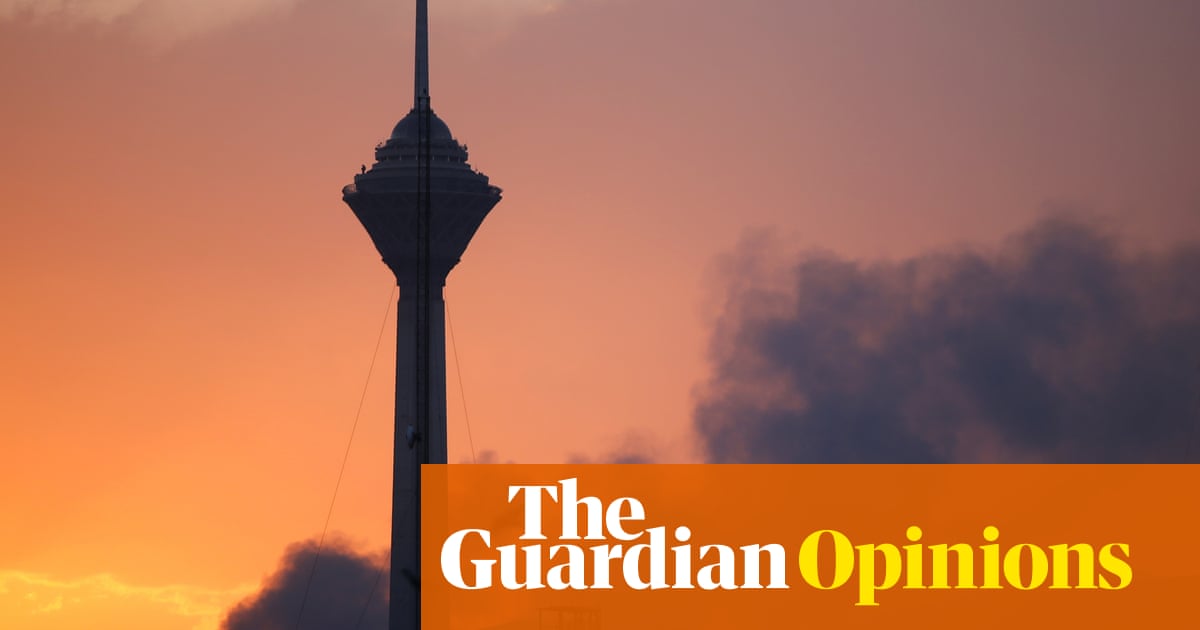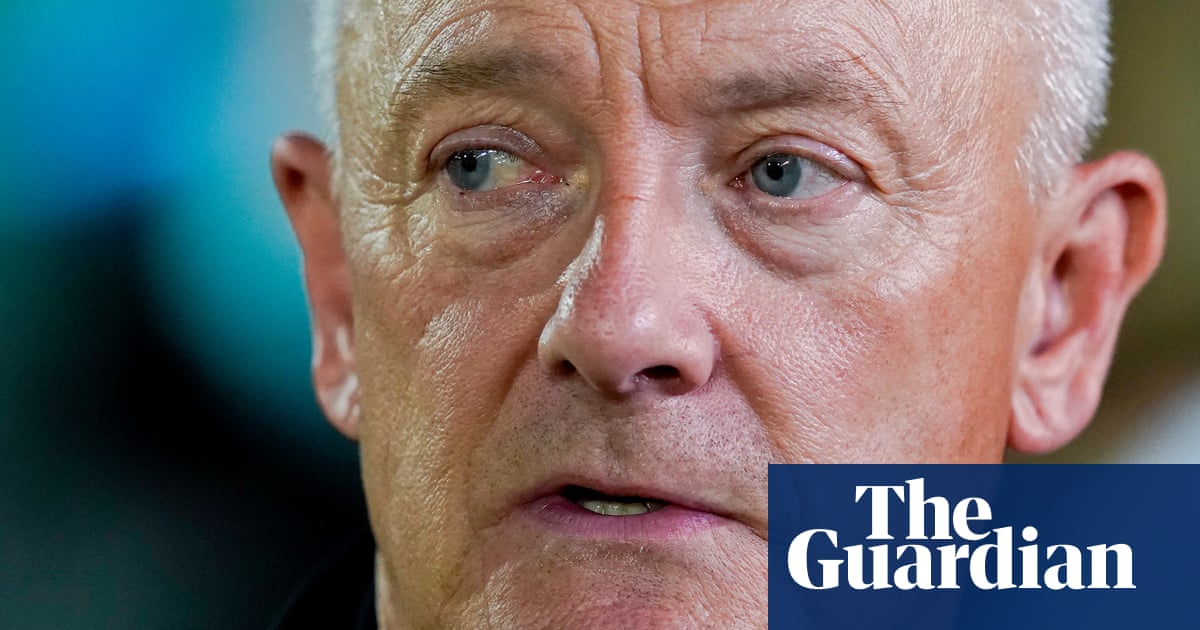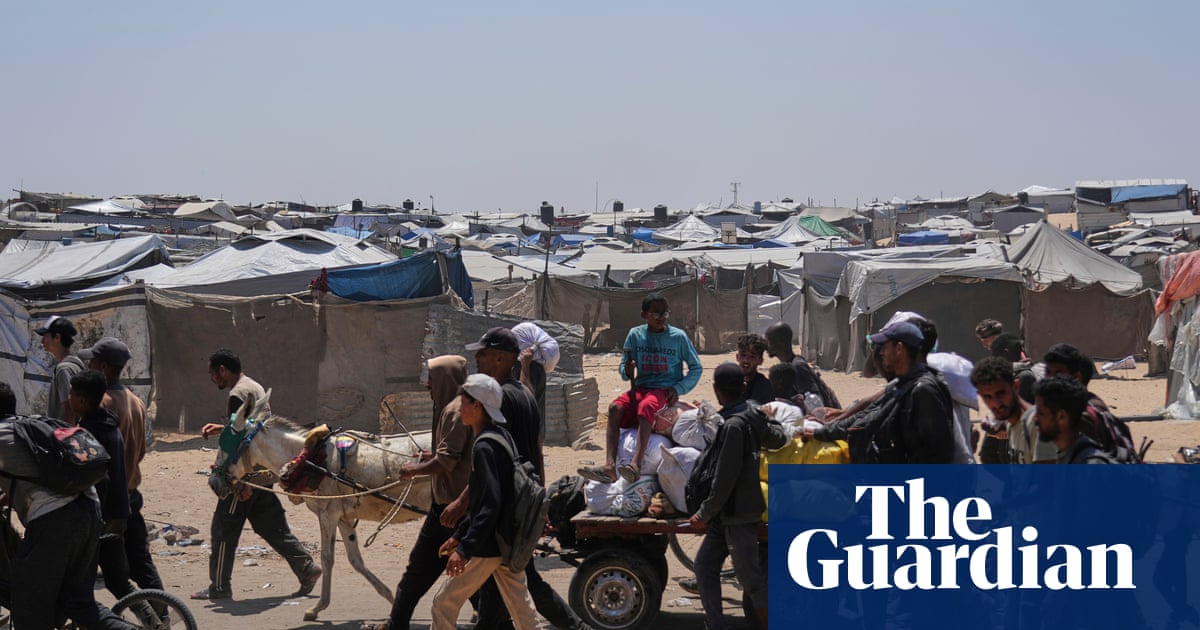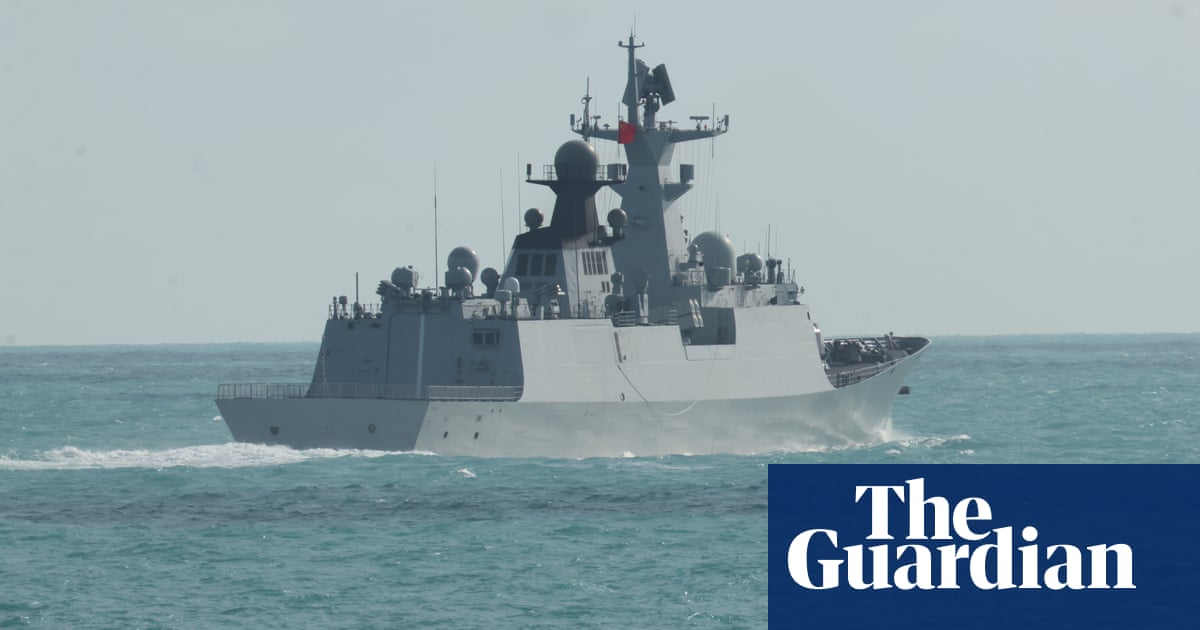Israeli forces issued an evacuation order to residents of a large part of Tehran on Monday, warning them of the imminent bombing of “military infrastructure” in the area in a social media post very similar to those regularly directed at Palestinians in Gaza over the past 20 months.
The post on X was from the account of the Israel Defense Forces’ Arabic spokesperson, Col Avichay Adraee, and is a further sign of the evolving nature of the Israeli campaign against Iran, which began with attacks on air defences, nuclear sites and the military chain of command, but appears to have drifted towards a war of attrition focused on Iran’s oil and gas industry and on the capital.
In another sign of the changing targets of the Israeli offensive, Iran’s state TV announced on Monday evening that it was under attack, and had to cease live broadcasting.
The sound of an explosion could be heard in a live transmission, and the news presenter hurried off camera as dust and debris appeared in the studio. Cries of “Allahu Akbar” or “God is greatest” could be heard off-screen and the broadcast abruptly switched to pre-recorded programming.
Adraee’s online post included a map depicting a significant area of the third district in northern Tehran shaded in red in the same manner he has presented evacuation orders for Palestinians.
“Dear citizens, for your safety, please leave the described area in the 3rd district of Tehran immediately,” the message said in Farsi.
“In the coming hours, the Israeli army will attack the military infrastructure of the Iranian regime in this area, as it has done in recent days in Tehran. Your presence in this area endangers your life.”
Speaking to personnel at Tel Nof air force base, the Israeli prime minister, Benjamin Netanyahu, confirmed the evacuation orders.
“The Israeli air force controls the skies over Tehran. This changes the entire campaign,” he said.
“When we control the skies over Tehran, we strike regime targets, as opposed to the criminal Iranian regime which targets our civilians and comes to kill women and children. We tell the people of Tehran to evacuate, and we act.”
Netanyahu later said killing Iran’s supreme leader, Ayatollah Ali Hosseini Khamenei, would “end the conflict” in what would be another ominous escalation.
Late on Monday, the Iranian Red Crescent said that three of its rescuers were killed in an Israeli air strike in northwest Tehran, adding: “This incident is not only a crime against international humanitarian law but also a blatant attack on humanity and morality.”
After the surprise Israeli attack on Friday morning, Iran has carried out retaliatory missile strikes on Israeli cities, focusing on the most populated areas between Tel Aviv and the port of Haifa.
Both sides have targeted each other’s oil and gas facilities, increasing the threat of environmental disaster, and explosions were reported on Monday near oil refineries in southern Tehran.
Earlier on Monday, Iran threatened to leave the nuclear non-proliferation treaty (NPT) as Israeli bombing raids entered a fourth day, underlining the conflict’s potential to trigger a broader war and Tehran’s race to construct a nuclear weapon.
The human cost of the war continued to escalate with both sides broadening their range of targets, as G7 leaders convened in the Canadian Rockies with no clear plan to end the conflict. There were reports on Monday that Donald Trump was refusing to sign a joint statement calling for the conflict to be scaled down.
“They should talk, and they should talk immediately,” Trump said of Tehran during the summit. “I’d say Iran is not winning this war.”
The Wall Street Journal reported on Monday that Iran was sending a message to Israel and the US through Arab intermediaries that it was seeking a cessation of hostilities and a resumption of talks on its nuclear programme.
The same report, however, said its stance was that it would only go back to the table if Israel halted its offensive. There was no sign on Monday of Israel contemplating a pause.
Iran’s health ministry said 224 people in Iran had been killed by Israeli attacks, 90% of them civilian, and more than 1,400 had been injured. Israel’s defence minister, meanwhile, threatened further bombing strikes on Tehran, where an exodus of residents has been reported, clogging roads out of the capital.
In Israel, at least 23 civilians have been killed in Iran’s retaliatory missile strikes since Israel’s initial surprise attack on Friday morning, and nearly 600 have been injured, according to official sources.
The Iranian foreign ministry spokesperson, Esmaeil Baghaei, announced on Monday that Iran’s parliament, the Majlis, was preparing a bill that would withdraw the country from the 1968 NPT agreement, which obliges it to forego nuclear weapons and to undergo international inspections to verify compliance. Baghaei added that Tehran remained opposed to the development of weapons of mass destruction.
The country’s president, Masoud Pezeshkian, also insisted that Iran did not intend to develop nuclear weapons but would pursue its right to nuclear energy and research. He pointed out that Ali Khamenei, had issued a religious edict against weapons of mass destruction.
Israel is the only Middle East state with nuclear weapons and did not sign the NPT, but has never formally acknowledged its arsenal.
It is seeking to maintain its monopoly with airstrikes against Iranian nuclear facilities, claiming that Tehran was close to building a bomb. Previous assessments by US intelligence and the UN nuclear watchdog found no evidence that Iran had begun work on assembling a nuclear weapon.
Israeli critics of the offensive say it cannot destroy Iran’s reserve of nuclear knowhow – though Israel has targeted Iranian nuclear scientists, claiming to have killed 14 – and could push the leadership into ordering the assembly of nuclear warheads.
Rafael Grossi, head of the International Atomic Energy Agency, told the BBC it was very likely all the roughly 15,000 centrifuges at Iran’s biggest uranium enrichment plant at Natanz had been badly damaged or destroyed because of a power cut caused by an Israeli strike.
But he said there had been very limited or no damage at the separate Fordow plant.
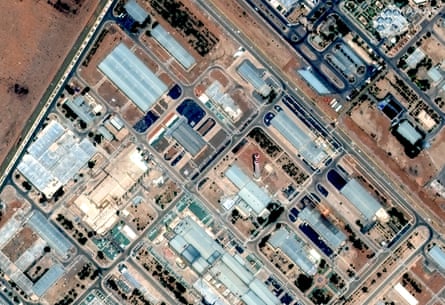
There were reports on Monday of Israeli strikes on the Tehran headquarters of the Revolutionary Guards al-Quds force, an expeditionary arm deployed in foreign wars.
Despite Israeli claims to have air superiority over much of Iran, Iranian forces have still been able to launch ballistic missiles from their territory and some continue to evade Israel’s multi-layered air defences. Israel Defense Forces officials estimate that it is has been able to intercept 80-90% of Iran’s missiles, with 5-10% hitting actual residential areas.
Eight more Israelis were killed overnight by Iranian missile strikes, including four in Petah Tikva where a missile hit an apartment block. Three people died from blasts in Haifa and an elderly man was killed when his home collapsed from the shockwave from an explosion in Bnei Brak, east of Tel Aviv.
Iran’s Revolutionary Guards claimed to have begun “more powerful and deadly” strikes and to have found a way of causing confusion in Israeli air defence systems. There was no immediate way of independently verifying the claim.

US forces have so far helped Israel intercept Iranian missiles, but have not taken part, at least overtly, in offensive bombing operations. On Monday, however, Reuters quoted two unnamed US officials as saying the movement of more than 30 military refuelling aircraft to Europe was intended to give Trump more options in the Middle East. Such tankers allow warplanes to refuel in mid-air and enable more sorties a day in wartime.
As Tehran residents evacuated the capital in increasing numbers, Israel’s defence minister, Israel Katz, threatened to make Tehranis “pay the price” for Ali Khamenei’s decision to keep firing missiles at Israel in retaliation for the Israeli attack.
The Iranian state-backed news agency Fars reported that the authorities had executed a man found guilty of spying for Israel’s intelligence agency, the Mossad. It was the third execution of an alleged spy in recent weeks.

 4 hours ago
1
4 hours ago
1
